
Articles on First Amendment
Displaying 1 - 20 of 141 articles

In 1922, Oregon voters approved an initiative to require public school for most students ages 8-16 − but it didn’t hold up in court.
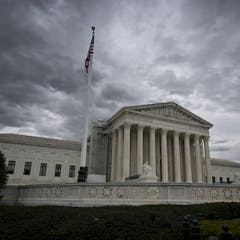
These cases have asked the justices to consider how to apply some of the most sweeping constitutional protections – those of free speech – to an extremely complex online communication environment.
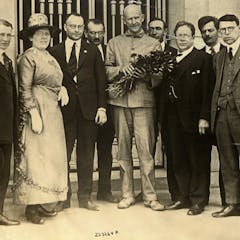
Can you run for president from a prison cell? One man did in the 1920 election and got almost a million votes.

A college junior who has gained a following by sharing high-profile people’s private flight information says that he is sharing public information. Others, like Taylor Swift, say that he is stalking.

Many countries wrestle with whether to include any kind of education about religion in public school lessons, and each one takes its own approach.
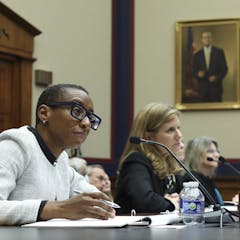
University codes of conduct support their mission to educate. But it’s not easy to balance those codes with the values of free speech, as the resignation of a prominent university president shows.
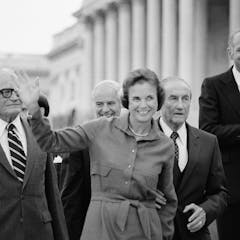
The first female justice on the Supreme Court was also the last justice to have served as an elected official. And her contributions to the court reflected her political experience and pragmatism.

The Supreme Court will hear five cases this term that will examine the nature of online discussion spaces run by social media platforms.

Does Louisiana’s requirement for public schools to post ‘In God We Trust’ in all classrooms violate the doctrine of separation of church and state? A legal scholar weighs in.

Recent Supreme Court decisions have signaled a shift in how the country’s highest court interprets the limits on religion in schools.

Using the rhetoric of the First Amendment, a string of US Supreme Court cases has allowed members of some religious groups to limit the freedoms of other Americans.

Current precedent relies on a 1982 case in which five justices generally agreed there were limits on a school’s power to ban books, but they didn’t agree on why.

The changes wrought by the new conservative majority in the US Supreme Court are revolutionary.

Publishers and studios routinely pay large sums to acquire ‘life story rights.’ Two law scholars explain why the phrase is misleading.

Trump has not been silenced. The limits on his speech protect fundamental rights − including his right to a fair trial by an unbiased jury and the public’s right to a working justice system.

What can President Trump and his lawyers say about documents and witness statements used as evidence in his upcoming trial over his alleged attempt to overturn the 2020 presidential election?

Distinct from civil disobedience, this legal strategy demands complete compliance with the law – even when there are loopholes that the laws’ creators didn’t intend.

To what degree can the First Amendment be used to protect someone from the consequences of lying?

A number of judges who considered challenges to anti-LGBTQ legislation passed by state lawmakers in 2023 had strong words for how the laws violated the First Amendment.
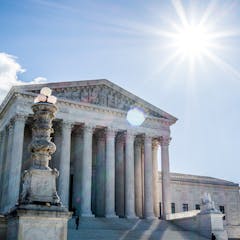
Two sociologists break down how cases related to plaintiffs’ beliefs and LGBTQ+ rights have fared in federal courts over several decades.
